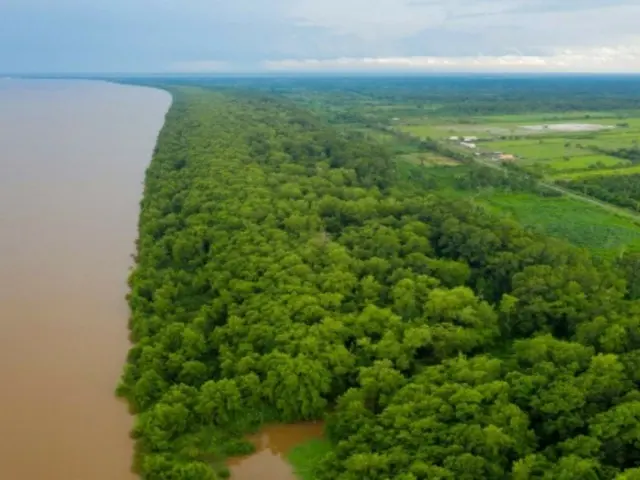Present at the launch ceremony were Dr. Richard Blair, Advisor to the Ministry of Agriculture and Forestry of Guyana, Mr. Jagarine Singh,
About 30 people including Director of the Agricultural Technology Promotion Institute, Dr. Singh, participated in the event. The official start of the forest cooperation project was announced. The Republic of Guyana, located in the northeastern part of South America, is a country where 85% of the land area is forested.
The country is covered by forests and has a coastline of 459 km. 90 percent of its settlements and 75 percent of its agricultural land are in low-lying coastal areas, making it vulnerable to sea-level rise and natural disasters caused by climate change.
Guyana's mangrove forests are essential for mitigating the effects of tsunamis, supporting biodiversity, and providing livelihoods to the nation's people, whose main industries are fishing and agriculture.
Mangrove forests, which had reached 10,000 hectares in size in the past, began to be destroyed due to economic development and other reasons. In 2011, the area was reduced to 23,000 hectares, a decrease of about 75%, and the restoration and sustainability of mangrove forests is in question.
In May this year, the Korea Forest Service, in cooperation with the Guyana government and the Global Green Growth Institute, launched a project to promote the ecological restoration of mangrove forests and to respond appropriately to the climate crisis.
The Forestry Agency and the Global Green Growth Institute have signed an agreement to develop specific business details and implementation guidelines for the project. As a result, the Forestry Agency and the Global Green Growth Institute will develop approximately 6 kilometers and 12 kilometers of Mahaica Coast in Guyana by 2027.
The project will restore 100 hectares of mangrove forest and strengthen ecosystem management based on the local community. In addition, the project will develop 1,000 hectares of farmland conservation activities together with about 500 residents.
The plan is to achieve a carbon dioxide reduction of 1.12 million tons over 25 years. Nam Song-hee, an international forestry cooperation officer at the Korea Forest Service, said, "Following the mangrove forests in Central and South America, we will continue to work to restore mangrove forests in South America.
The plan is to use this technology to improve the coastal region's ability to adapt to the climate crisis. At the same time, the project will set an exemplary precedent for promoting biodiversity and green jobs, and strengthening the economic self-reliance of coastal regions.
"We are," he said.
2024/09/20 05:39 KST
Copyrights(C) Herald wowkorea.jp 104

